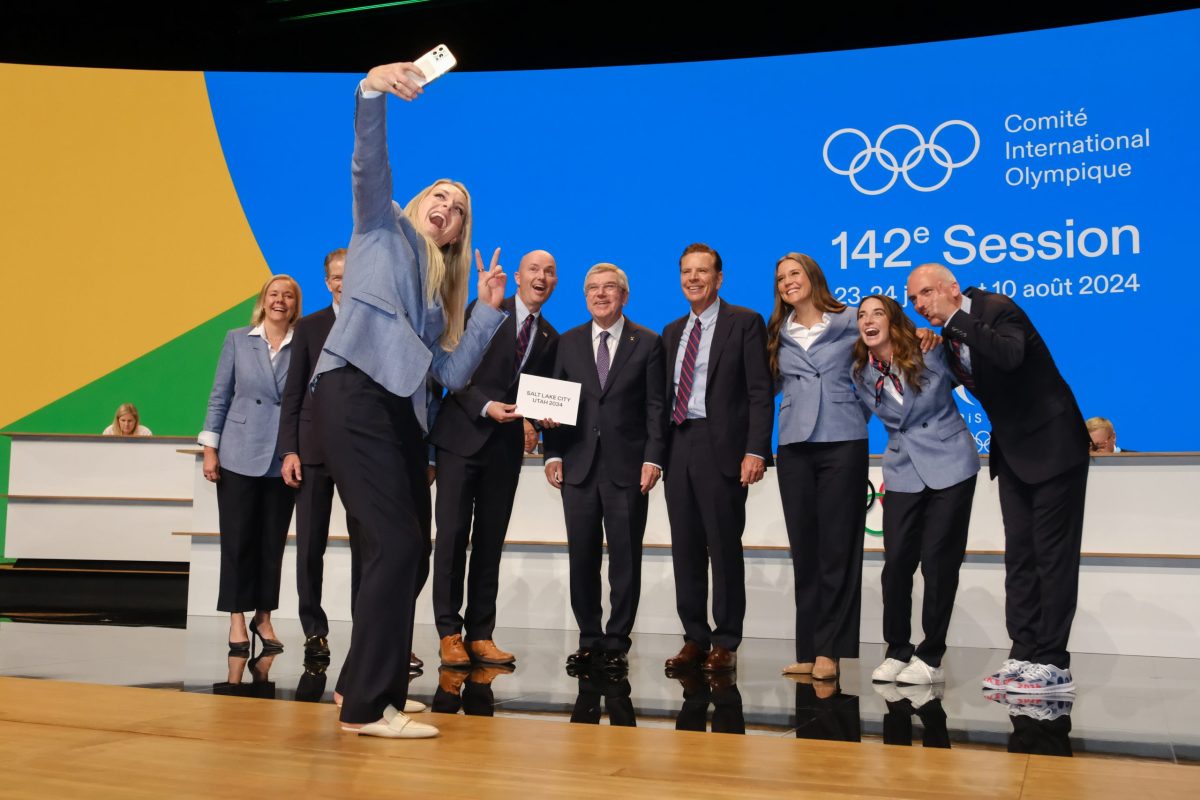PARIS — Now that the International Olympic Committee has confirmed Salt Lake City will host the 2034 Olympic Games, Utah, delegates to Paris can breathe a sigh of relief. It’s really happening.
Now the group is taking a victory lap after landing the bid.
At the post-award luncheon with athletes, donors, elected officials and the like, Gov. Spencer Cox told the 200-plus in the room that in 2002, Utah needed the Olympics, but in 2034, the Olympics need Utah.
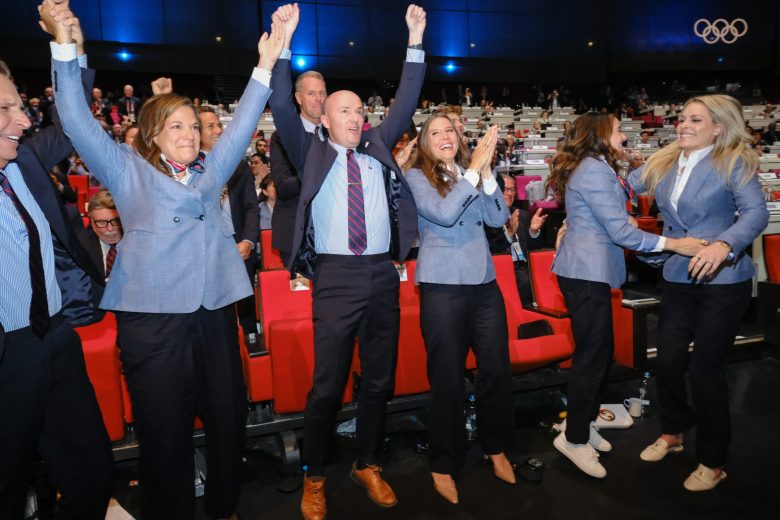
Later in the afternoon press conference, he elaborated by saying that the 2002 games provided Olympic and community infrastructure along with community pride as a coming-out party for the state. For the 2034 games, the governor hopes that the preparation, and ultimately the Games themselves, will serve as a bonding project for all Utahns during what Cox described as fractured times.
Park City Mayor Nann Worel said the Salt Lake City-Utah Committee for the Games’ presentation to the IOC had her “choked up a lot.”
“I saw Park City just framed there on the screen, and I thought, ‘I’m so incredibly proud of our state and our city,'” Worel said.
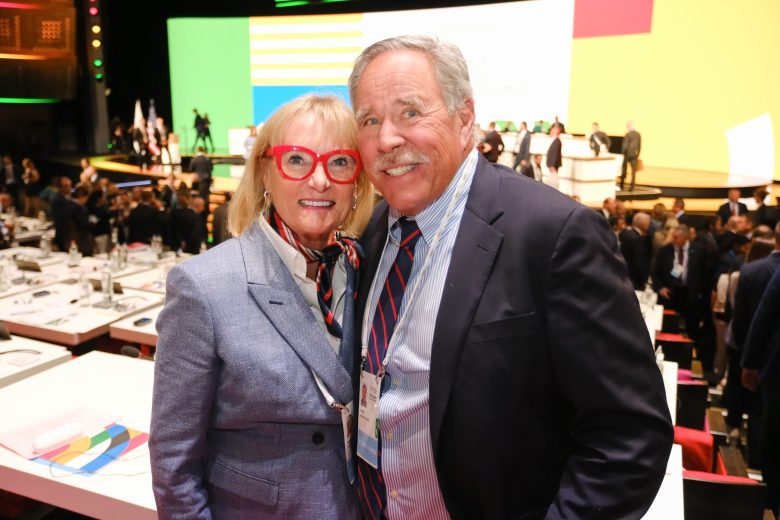
Of course, there’s a lot to be done. Worel said she’s ready to start taking concrete steps now that it’s official.
“We have a press release ready to go out in conjunction with the chamber in Summit County, as well as Park City Mountain and Deer Valley, announcing that we’re going to go out for a (request for proposal) to hire a person or a firm to do a 10-year action plan,” Worel said.
Part of that plan will include planning for 2035, too, Worel said.
“(The Olympics are) only going to be two weeks,” Worel said. “So let’s build for 2035 and beyond and know that that’s going to be part of our Olympic preparation.”
Park City Councilor Bill Ciraco said he felt moved by the committee’s presentation to the IOC.
“You could say that there was an authentic genuine emotion, just on everybody’s part,” Ciraco said.
He praised the delegation’s speeches, calling the governor’s speech “presidential” and saying Fraser Bullock, CEO of SLC-Utah 2034, did a fantastic job.
Lindsey Vonn’s support was super helpful, too, Ciraco said.
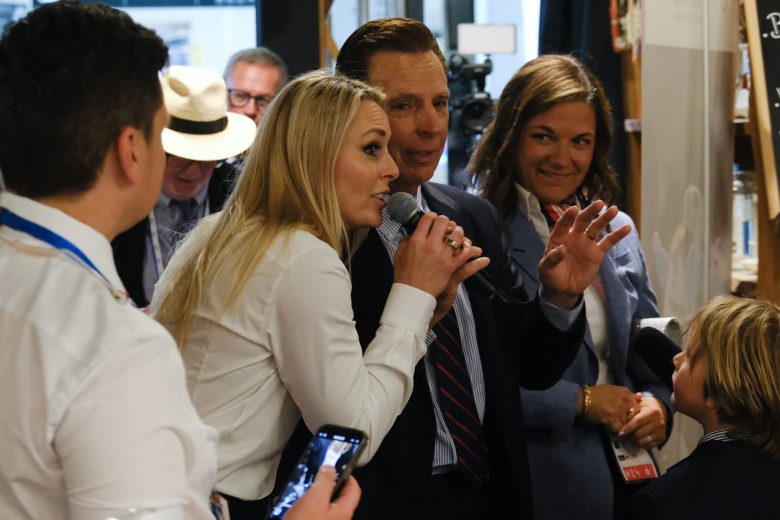
“I think what was even more moving was the genuine emotion that she displayed during her presentation when she talked about the importance of family, and how that’s a focus of this, of the Utah bid, to make sure that this (is an Olympics) where the families participate to the same degree that the athletes do.”
Eight-time short track speed skating medalist in the Winter Olympics Apolo Ohno agreed that the awarding was an emotional time.
“Salt Lake City in 2002 was my first Olympic debut,” Ohno said. “The state of Utah and Salt Lake City and Park City, the people, have been incredible to me, to speed skating, the Olympic movement, and its impact. Those moments in Salt Lake City continue to impact my personal life in an extremely positive way.”
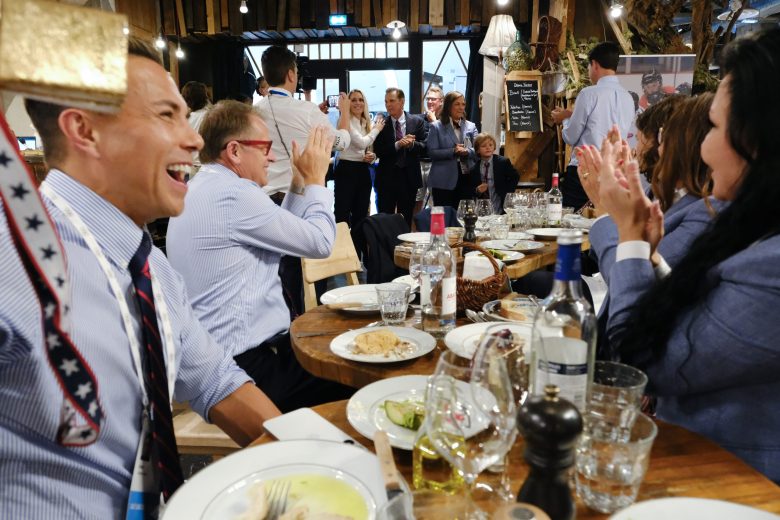
“The secret is fully out about the special place of Utah,” Ohno said.
He acknowledged that the Olympics are an expensive and potentially risky commercial for the place that hosts them. It’s not an easy decision to do so.
“If you look around the room, many of these people who are here, they don’t need to put that on the line and (take) that risk,” Ohno said. “But they’re willing to do that, and they’re all working together. … That’s a unique aspect of Utah: It still has the small-town feel, but it’s a very big place.”
Ohno emphasized that with nearly 10 years to go, the state’s challenge of fostering sustainable growth is hard to fathom.
“There’s millions of people who are not Olympic athletes who live and call Utah home,” Ohno said. “And so the call upon the combination of receiving the Games, the stewardship of the Olympic movement, and then also making sure that people can give back to the communities, the grassroots level, how does this impact people by hosting the Games? Not only the volunteers and the kids who are watching at home, but the small businesses, the mom and pop, the corporations that call it home, the families that live there.”
A guiding principle might be to think about the next generation, Ohno said.

